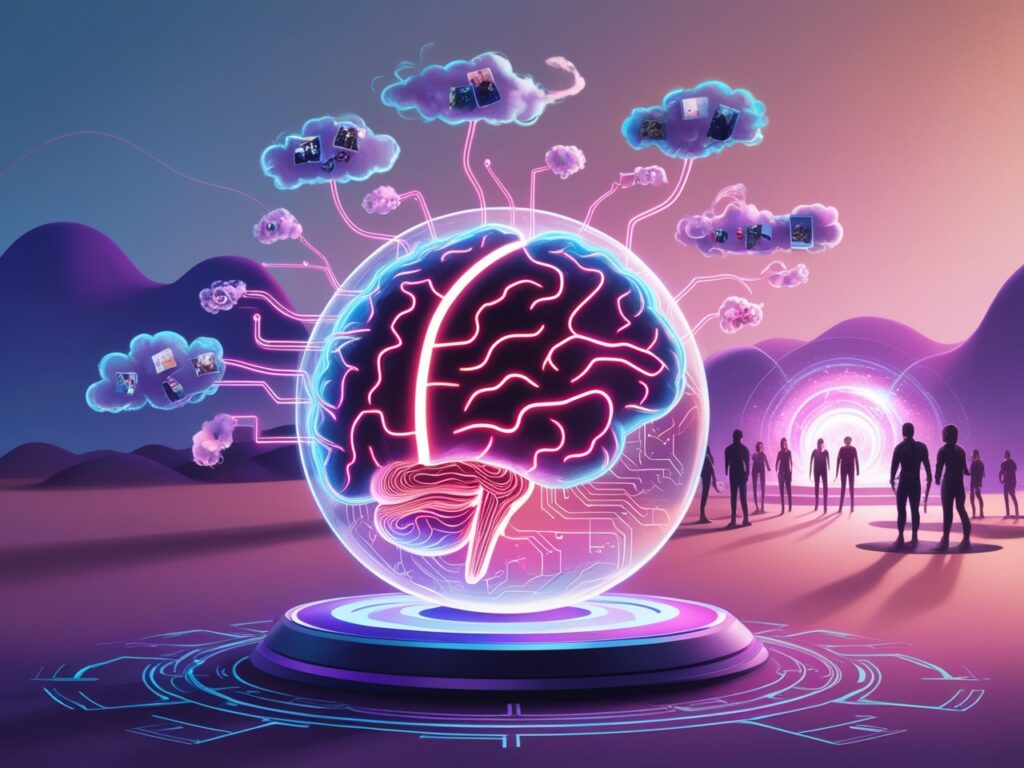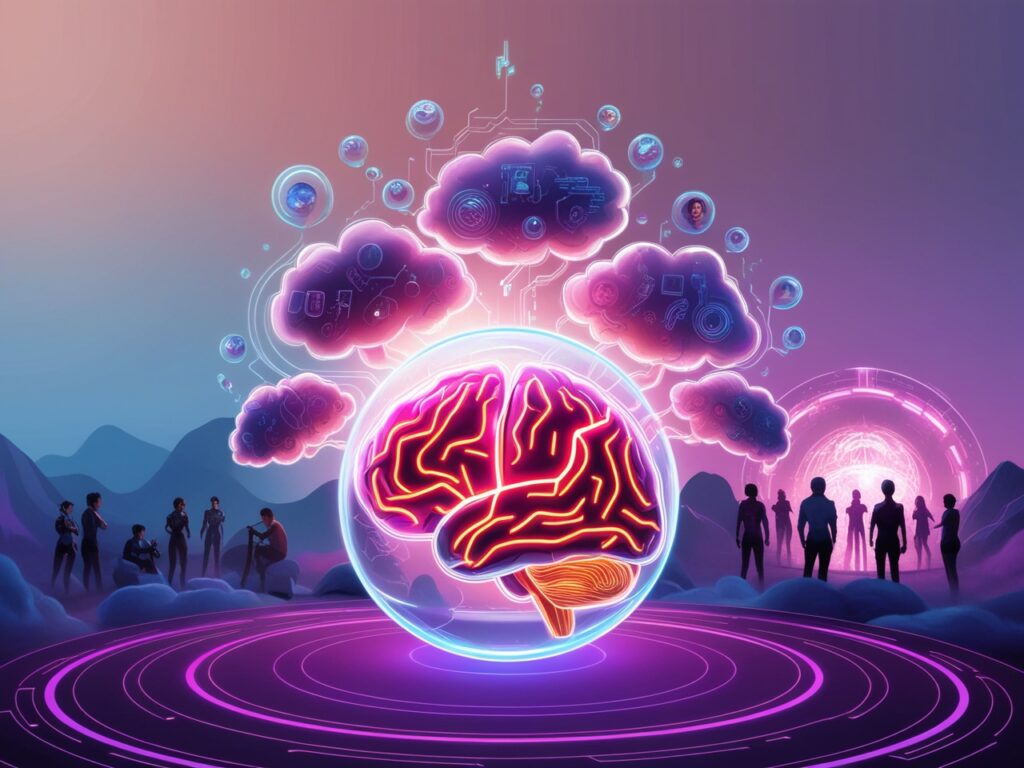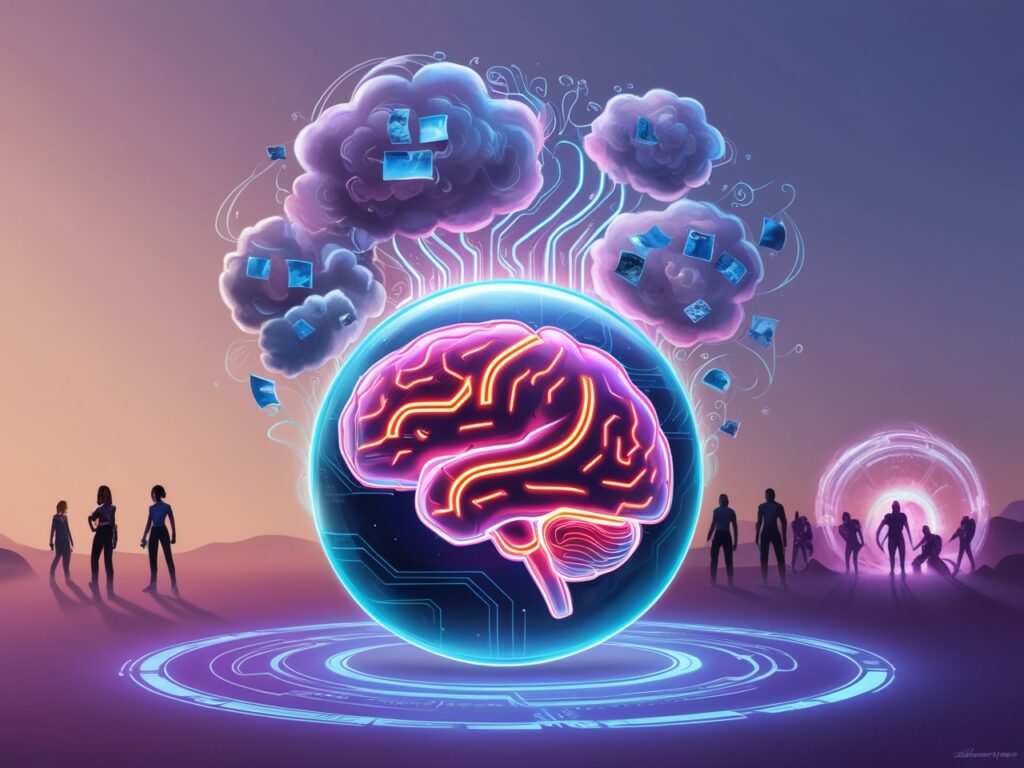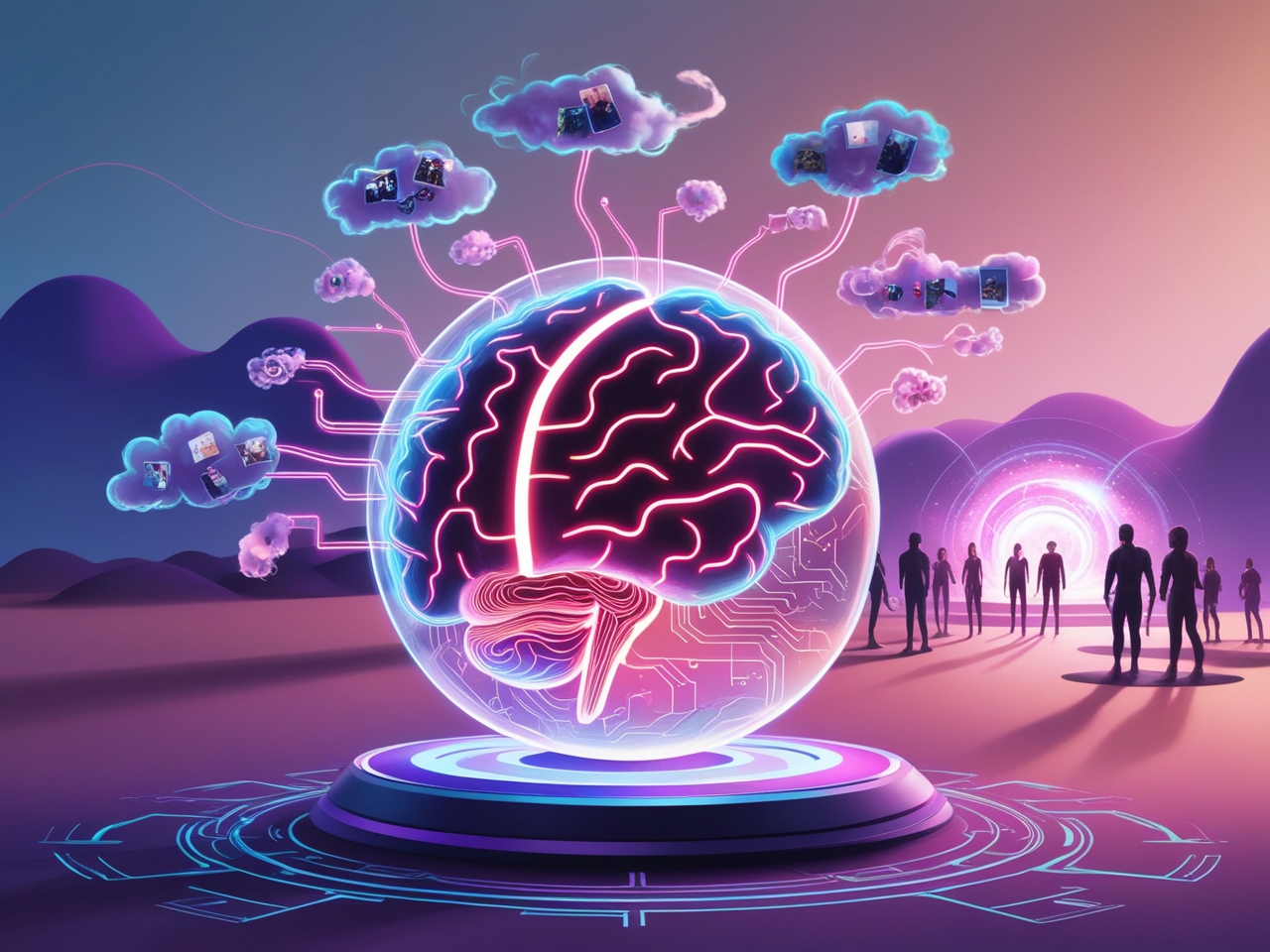Introduction: The Intersection of Inner Experience and Gaming
- Overview of the topic: Introduction to how inner experience, or the silent dialogues of the mind, is shaping the future of gaming.
- Why inner experiences matter in games: The significance of emotions, memories, and cognition in gaming environments.
- Emerging technologies: Brief mention of VR, AR, AI, and neurotechnology as tools to explore inner experiences in gaming.

The Science of Inner Experience: Understanding the Human Mind
- What is inner experience?
- Definition and scope: Silent dialogues, thoughts, emotions, and memories.
- Role of consciousness in forming inner experiences.
- Neuroscience of gaming: How the brain interacts with gaming stimuli.
- Neuroplasticity: How games could shape cognitive functions.
- Cognitive processing: The role of attention, memory, and learning.
- The mind-body connection in immersive environments: How physical sensations and mental states overlap in gaming experiences.
The Role of Emotions in Gaming
- Emotional immersion: The power of emotions to engage players.
- Examples of games that evoke strong emotional responses (e.g., The Last of Us, Red Dead Redemption 2).
- The science behind emotional engagement: Theories of emotional response and arousal in gaming contexts.
- Emotional intelligence and decision-making: How gaming might shape emotional growth and empathy.
Memory and Experience: Creating Lasting Impressions
- Memory formation: How experiences in games are stored and recalled in the mind.
- The science behind long-term and short-term memory.
- Games as memory triggers: How storytelling and game design influence players’ memories.
- Use of narrative structures to create emotional recall.
- The impact of personal choice and consequence in gaming memory.
- Memory manipulation in games: Games that challenge players’ perception of memory (e.g., Max Payne, Bioshock Infinite).
The Impact of Virtual Reality and Augmented Reality on Inner Experiences
- Immersive worlds and the brain: How VR and AR shape perceptions, feelings, and thoughts.
- VR as a tool for simulating memory, thought processes, and emotional landscapes.
- How VR/AR gaming could enhance self-reflection: Games designed for introspection and personal growth.
- The potential for empathy-building through VR: Experiencing the world from another’s perspective.
Neurotechnology: Merging the Mind and Game Design
- Brain-computer interfaces (BCIs): Direct connections between brain signals and gaming systems.
- How BCIs can create a deeper connection between players and games.
- Future potential of BCIs in gaming and mental health.
- Neurofeedback in gaming: Using brainwaves to enhance gameplay and cognitive abilities.
- The future of thought-controlled gaming: How gaming could evolve into a thought-driven, ultra-immersive experience.
Designing Games for Inner Experience
- Psychological principles in game design: How game mechanics are tailored to evoke specific emotional and cognitive responses.
- Positive reinforcement, cognitive load, and player agency.
- Adaptive games: Games that adjust difficulty and narrative based on players’ emotional and cognitive states.
- Games as therapeutic tools: The growing field of games designed for mental health and rehabilitation.
- Cognitive behavioral therapy (CBT) and emotional regulation in gaming.
- Case studies of therapeutic games (e.g., Sea of Solitude, Celeste).

Transforming Narrative Structures with Inner Experience
- Narrative choices and memory: How player choices alter the flow of a story and its long-term impact.
- Interactive storytelling: Creating more immersive stories through player emotions and psychological states.
- The role of non-linear narratives: Games where inner experiences and memories change the course of the narrative.
The Future of Gaming and Its Psychological Impact
- Evolving game technologies: What the future holds for integrating inner experiences with gaming.
- Ethical considerations: Exploring the ethical implications of using brain data and emotional responses in gaming.
- Games as tools for mental wellness: The rise of “healing games” focused on reducing anxiety, depression, and stress.
- Predicting the future of gaming: How advancements in neuroscience and psychology will reshape game development.
Exploring the Mind’s Role in Immersive Gaming
The human mind has always been the central point of interaction when it comes to games. Whether it’s a quick mobile puzzle or a sprawling role-playing game (RPG), the mind’s involvement makes each game unique. The power of immersion is based on how well a game can create an environment where players lose themselves, connecting deeply with the narrative, characters, and actions. But beyond the visual and auditory elements, there’s a more subtle interaction happening: the emotional and cognitive responses that players unknowingly experience. This silent dialogue with the game world could be the key to creating games that feel personal and profound.
How Games Tap into Memory to Create Meaningful Play
Memory is more than just a recollection of events; it’s how we connect the dots of our experiences. In gaming, memory is intricately woven into the design to evoke powerful emotions and motivations. The repetitive patterns, familiar challenges, and decisions that players make are all tied to their past experiences—both real and virtual. Games that rely on memory, such as The Witcher 3: Wild Hunt or Life is Strange, bring the concept of choices and consequences to the forefront, asking players to reflect on their actions. By integrating memory, games can create more profound connections with their audience, making them feel like participants in a living, breathing world.
The Role of Choice and Consequence in Crafting Inner Experiences
Choice is a fundamental part of many games today. But how deeply do these choices affect the player? In some games, decisions made by players don’t just change the outcome of the game—they shape how players feel about the experience. This idea of choice affecting inner experience is crucial to understanding the psychology behind interactive storytelling. Games like Mass Effect and Detroit: Become Human offer choices that not only affect the game’s narrative but also create internal dialogues for the players, forcing them to examine their own values, ethics, and emotions. These introspective moments lead to vivid memories that players carry with them long after the game ends.

Personalized Experiences: How AI Enhances Emotional Connection
Artificial Intelligence (AI) is quickly becoming a central tool in crafting personalized gaming experiences. Games are beginning to use AI to understand players’ preferences, actions, and emotional responses, then adapt the game to make each experience unique. Whether it’s changing a character’s dialogue based on a player’s choices or adjusting the environment to evoke a certain feeling, AI allows the game to speak directly to the player’s subconscious. This dynamic approach to game design creates a more vivid, memorable experience, blurring the lines between the virtual and real world.
Emotional Intelligence: How Video Games Teach Us to Understand Ourselves
Emotional intelligence (EI) refers to the ability to recognize, understand, and manage our own emotions, as well as recognize and influence the emotions of others. While many games focus on player skill, the most impactful ones are those that engage players emotionally, forcing them to tap into their EI. For instance, games like Hellblade: Senua’s Sacrifice explore mental health, helping players understand what it might feel like to live with psychosis. By navigating these emotional landscapes, players can develop a deeper understanding of themselves and others, showcasing the therapeutic potential of gaming.

FAQs About Inner Experiences and Gaming
- What is inner experience in gaming?
- Inner experience refers to the mental, emotional, and cognitive responses a player has during a game. This includes thoughts, feelings, and memories that are evoked by the game’s story, environment, and mechanics.
- How do emotions affect gameplay?
- Emotions can drive player decisions, heighten immersion, and influence the overall experience of the game. Emotional engagement can make a game more memorable and impactful.
- Can video games influence our memories?
- Yes! Games often include narratives, characters, and choices that evoke memories, helping players recall past experiences or shaping new ones as they progress through the game.
- How can virtual reality (VR) enhance inner experiences in gaming?
- VR offers a fully immersive environment, allowing players to experience a game as if they were physically present in it. This increases emotional engagement and creates more vivid, lasting memories.
- What role does choice play in shaping inner experiences?
- Player choices create personalized narratives that resonate emotionally. The impact of these decisions extends beyond the game, as players reflect on their choices long after they’ve finished playing.
- How do game developers use artificial intelligence (AI) to personalize experiences?
- AI helps tailor the game to each player’s actions, preferences, and emotional responses, creating a more engaging and unique experience. AI can adapt the game world in real-time, enhancing emotional connection.
- Can games improve emotional intelligence (EI)?
- Yes! By navigating complex emotional situations and making choices that affect others, games can help players develop better emotional awareness and empathy.
- How does the brain process gaming stimuli?
- The brain processes gaming stimuli in a similar way it processes real-world experiences. It engages sensory, emotional, and cognitive systems, making gaming an immersive, multi-layered experience.
- What are the ethical concerns about using brain-computer interfaces (BCIs) in games?
- BCIs could potentially gather sensitive data on a player’s emotional and mental state. There are concerns about privacy, consent, and the potential for exploitation if this data is used improperly.
- Are games the future of mental health therapy?
- Some games are already being used as therapeutic tools, addressing issues like anxiety, depression, and trauma. As games continue to evolve, they may become a mainstream method for supporting mental health and emotional well-being.
Conclusion: A New Era in Gaming
- Summary of key points: Recap of how inner experience is poised to transform gaming.
- The future of player connection: How inner experiences will create a deeper bond between players and the games they play.
- The legacy of this transformation: Envisioning a future where gaming isn’t just entertainment, but a medium for self-discovery and personal growth.









